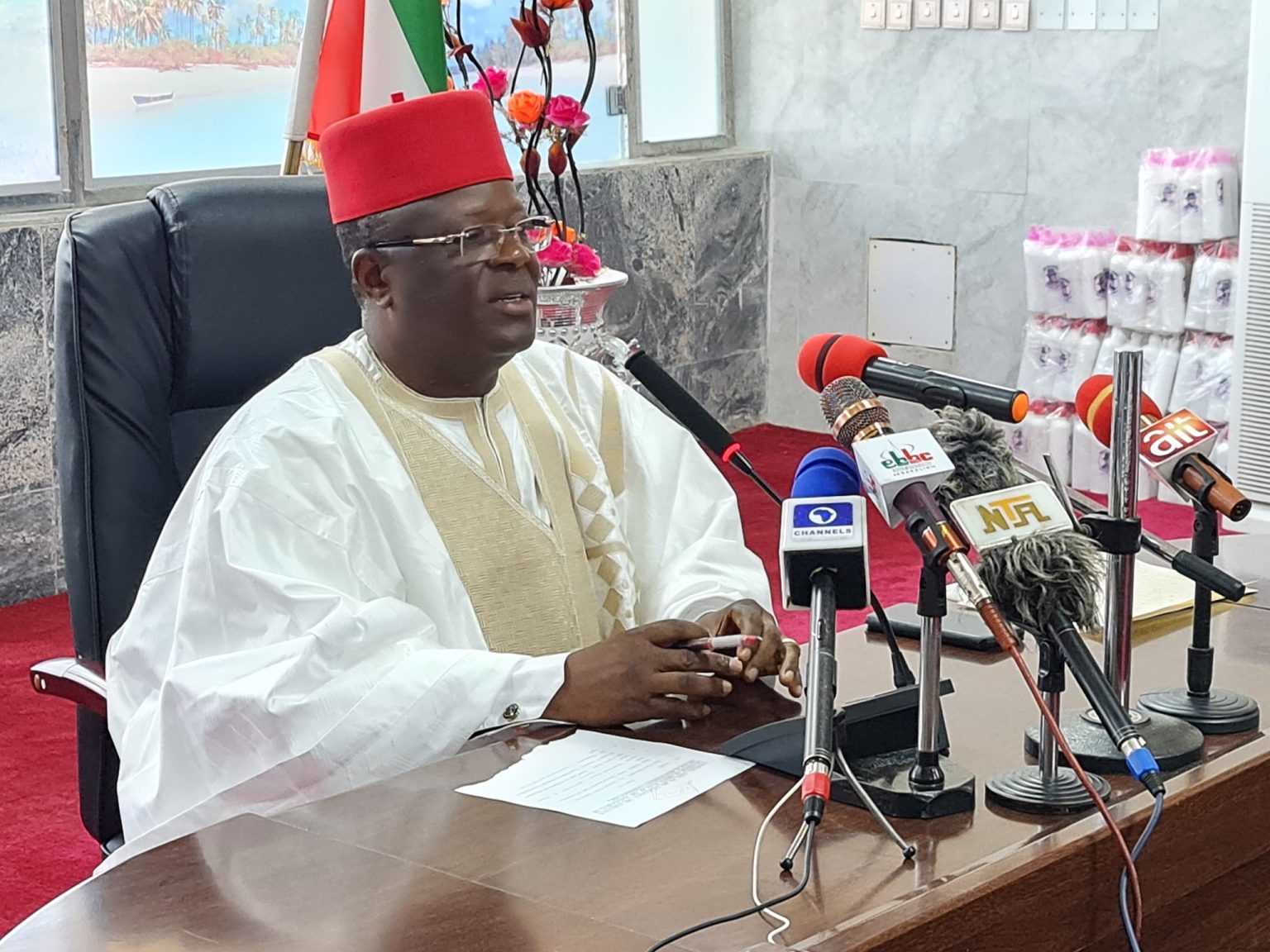Nigeria
Asphalt-using contractors must sign a 30-year indemnity agreement, according to Umahi

Sen. David Umahi, Minister of Works, has stated that companies utilising asphalt in road building must sign an indemnification agreement with the ministry for the whole 30 year lifespan of the roads.
This was stated by Umahi on Monday in Abuja during a press conference to discuss the overall trajectory of the ministry under his leadership.
He declared that contractors using asphalt would not be prohibited but would instead need to sign a durability agreement.
However, according to the minister, projects that have already been awarded will not be required to build concrete roads.
Although concrete roads would endure longer, he said that contractors would need to guarantee that roads built with asphalt would last up to 30 years.
“We aren’t stopping the asphalt work, but we can’t afford to pay for a job that we know won’t last for five years.”
“Contractors obstruct their tracks using the absurd justification that the road is overloaded and not wide enough.
“Nigeria must receive value for the taxes it pays; enough with the contractors that perform shady job while being paid for it.
“The concrete road will last for 50 years if it is installed properly, and we have had experience doing it elsewhere besides the one I installed in Ebonyi.
He claimed that the African Development Bank-funded Abakaliki Ridgeway Road was actually completed before he left government.
However, when discussing funding for roads, Umahi expressed his concern over the way Nigeria’s fiscal allocation was set up, which did not encourage contractors to quickly complete federal road projects.
The annual delivery of funding to contractors, according to Umahi, causes road projects to lag since, in most cases, the contractors have minimal access to money for the purchase of raw materials.
According to him, the delay led to a contract variation because inflation changed the initial sum that was agreed upon for the project.
“If you pay a contractor N150 million year for an N600 million road project, he will pocket the money while mobilising to the site and accomplishing nothing there.
When questioned, he will claim that he hasn’t received the materials he sought for use outside the country because there wasn’t enough money, the author predicted.
He urged the National Assembly to release the over N650 billion it had withheld for several projects around the nation, saying they were nearly finished but were still being held up by a lack of funding that was keeping the contractors on the jobsite.
He claimed that the roads would not be finished if the money was not returned, which would have a detrimental effect on the economy.
The minister suggested that senatorial district representatives who were members of the National Assembly meet with the governors of their respective states to identify the top priorities that might be finished by the deadline.
He argued that economic trees and cash crops should be planted on road corridors to prevent danger in order to reduce the number of cases of citizen kidnapping along roadways.
“Nigerians must receive value for their taxes, and since terrible roads are the location of kidnappings, it is important to clear the area and establish cash crops.
“We should imitate it in every region of the nation because it is excellent and acceptable. It will put an end to kidnappings, he claimed.
He continued by saying that the ministry would examine how the Federal Road Management Agency (FERMA) operated to make sure that any interference in states would be made with the consent of the state governments.
This, he claimed, would establish the state governments’ top priorities.
